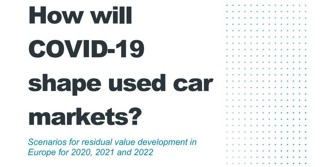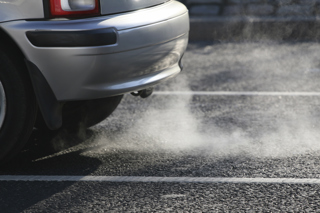Growing volumes of COVID-19 coronavirus lockdown used car sales have prompted Cap HPI to recommence valuation changes – and initial sales suggest a 2% to 5% decline.
No changes to used car values were made by the automotive data provider between the start of lockdown on March 24 and May 10 as it concluded that there was “insufficient data” to do so.
The valuations provider also joined with Auto Trader is suggesting that car retailers’ efforts to cut values to boost the market during the lockdown period would prove ineffective and create instability for the sector.
Following recent guidance from the National Franchised Dealers Association (NFDA) and Government clarifying that both home deliveries and click and collect services are permitted during the lockdown period, however, Cap HPI has now said that the used car market is showing “signs of recovery”.
Data volumes which increased by 70% in the week commencing May 4 – compared to two-weeks earlier – suggest a 2% to 5% downward movement for some of those models and ranges older than five-years-old.
Derren Martin, Cap HPI’s head of UK valuations, said: “The previous five-years have seen an average drop of 4% during April and May at the five-year-old age point, and last year witnessed a 6.3% drop.
“So, the movements we are currently seeing in the middle of this pandemic are by no means seismic.
“We are reflecting the data as volumes slowly increase.”
AM reported this week that ageing stock had been cited as the “main driver” of £1.6 billion losses incurred by Europe’s used car retail sector between the start of the COVID-19 coronavrius lockdown and mid-April.
Autovista’s ‘Scenarios for residual value development in Europe for 2020, 2021 and 2022’ whitepaper detailed the scale of the losses incurred by the sector in the opening weeks of the pandemic and said that it expects losses in residual values observed across markets “to build up over the coming weeks and months”.
Suzuki GB managing director, Dale Wyatt, said that over-zealous cuts to used car values as lockdown restrictions eased were among his key concerns surrounding the financial welfare of his retail network, in an interview with AM.
Wyatt said: “We cannot have our retailers treating these days of lockdown as if they were normal trading days.
“When the market returns we cannot afford to have retailers approaching their stock like it’s suddenly 90-day over-age. I think we’ll need to be more patient than that to minimise the impact of the lockdown period.”
The Society of Motor Manufacturers and Traders (SMMT) this week reported The UK's used car market contracted by 8.3% in the first quarter of 2020 following a COVID-19 coronavirus lockdown-prompted 30.7% decline in March sales.
Warning retailers to excercise caution as they make their retrun from the lockdown period, Auto Trader’s commercial director, Ian Plummer, said: “It is essential that retailers are poised to reopen their doors, with enhanced health and safety measures yes, but also with the right stock at the right price. Crucially, this does not mean slashing prices; maintaining prices in line with market valuations will help the used car industry recover together as one.”
Martin said that Cap HPI was now in a position to “confidently move values in line with the market”, taking a prudent approach using its editorial expertise – no algorithms – to analyse car valuation changes.
He added: “Initially, we will be moving values on older vehicles in mainstream sectors, where there is enough evidence to accurately reflect current prices, by looking at each generation of model individually. No overall market movements will be applied.
“At the current time, younger used cars will not be moved in value as that end of the market is still very much in a hiatus.”
Cap HPI said that it had observed around 7,500 car sales records in April and that volume had been exceeded by the middle of May.
It argues that while wholesale records are still well below usual volumes, there is now enough data for prices to be reflected to assist the industry.
The data company sai that outliers, unrepresentative volumes and prices will not be reflected to move values.
It has also said that it had made the decision not to move values of younger cars or of cars in niche sectors “due to the paucity of data available”.
For now, valuation movements will only be made on cars between around five and 20-years old, it said, although that situation will be reviewed on an ongoing basis.
Martin concluded: “We can see how retail and trade values operate differently in the market and this continues to be true during the pandemic.
“It’s more important than ever to take a careful, considered view from the evidence and it is likely to be a volatile time for used car prices over the next few weeks, whilst supply and demand dynamics work themselves out.
“We would recommend the industry keeps a very close eye on our daily valuations as they may move in either direction.”




















Login to comment
Comments
No comments have been made yet.